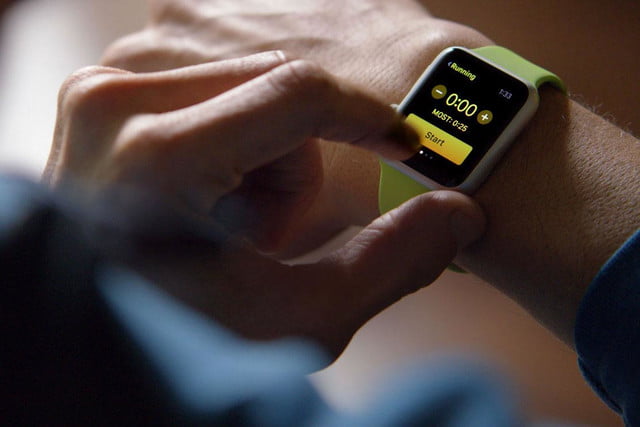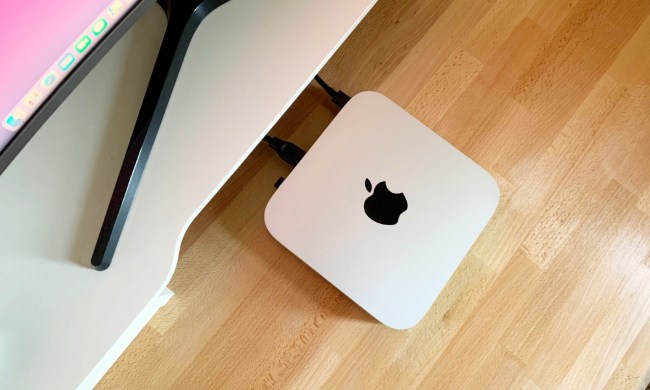
Want an Apple Watch? You may want to talk to Aetna. According to a report from CNBC, Apple and the insurance company held a number of “secret discussions” last week in order to make the wearable more widely accessible to Aetna customers. And with millions of individuals (23 million, to be exact) using Aetna’s services, that could mean a lot more Apple Watches for a lot more people.
Currently, Aetna already offers its 50,000 employees the smartwatch as part of its corporate wellness program. But while we may not all work for Aetna, even working with Aetna could pay off in the form of a wearable.
Apparently, it’s all part of the company’s efforts to increase public interest in a more health-conscious lifestyle, as well as to aid folks in tracking their diets. And who better to help with that than Apple, whose wearable is now the top-selling tracker in the market, having just overtaken Fitbit as the industry leader. In fact, in the first quarter of 2017, Apple shipped 22 million Apple Watches.
Moreover, Apple appears to be looking for more ways to improve its wearable, including adding “continuous and noninvasive blood sugar monitoring.” That could certainly make it far more useful to wearers, particularly those with diabetes.
Supposedly, secretive meetings happened in Southern California last Thursday and Friday. The only folks invited to the meetings were executives from the two companies, and hospital chief medical information officers from around the United States. One of CNBC’s sources claimed that Apple’s Myoung Cha, who leads Apple’s special projects in the health division, led the negotiations.
Mandi Bishop — who previously ran global health analytics over at Dell — was among one of the digital influencers invited to the event. Bishop now runs a startup called Lifely Insights and had a few takeaways to share from the meetings, CNBC reports.
When it comes to cost, Bishop expressed a lot of Aetna employees spoke about the watch being affordable for the entire family. Seeing as how many of those enrolled in the program wanted to get healthy with the help of their families, upwards of $1,000 for the devices is extremely pricey.
While the cost wasn’t resolved at the meeting, it is definitely a point of concern. Aetna hopes to work with Apple to offer either a free or discounted Apple Watch as a perk to members, but it remains unclear whether it will happen.
As for data, Bishop mentioned Aetna employees had concerns the health data collected by Apple Watch could be shared with external vendors. Others asked if information like heart rate and other vital signs could be stored in a personal health record.
Those who tested out the watch also had positive feedback to share with Apple, but there were a few issues. One complaint was Apple Watch doesn’t remind a user to move when they’re sitting for long periods of time. There is also no option to set an alert for meditation.
A majority of wearable devices are targeted for users who are already invested in their health and want to improve their workouts. But Bishop pointed out that in order for Apple Watch to make an impact on health insurers, it would have to attract those with costly chronic diseases. The device would also need to appeal to an older demographic rather than strictly young and healthy users.
We’ve reached out to Apple and Aetna, and while they’ve declined to comment, we’ll update you with any developments or timelines.


